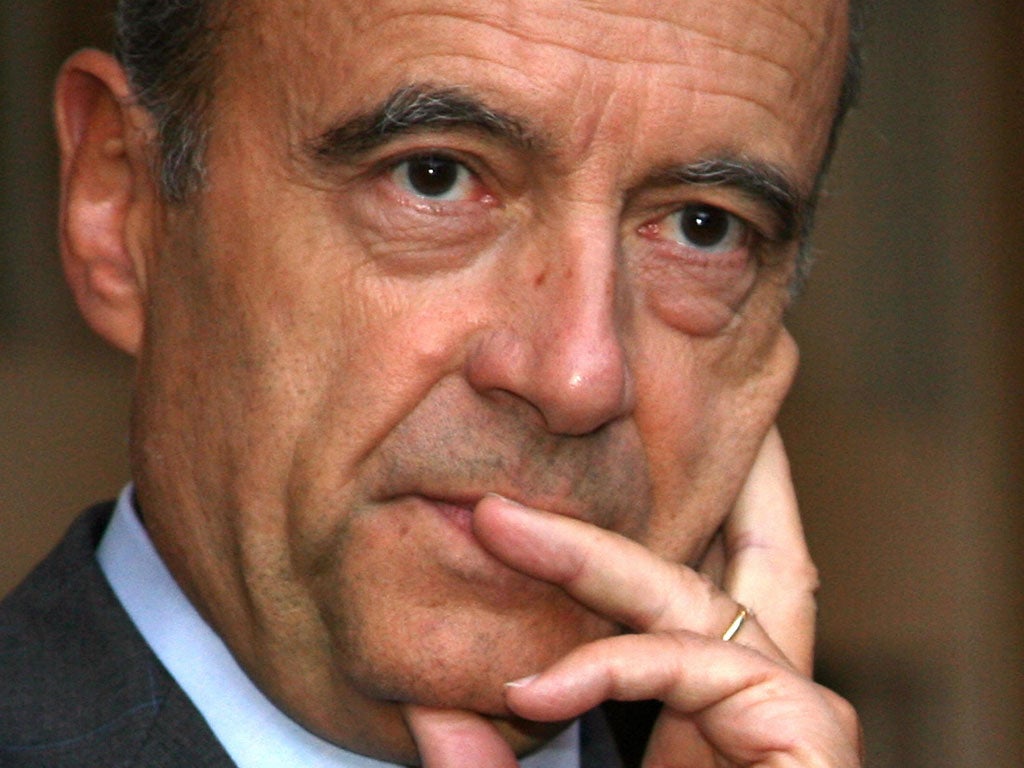Juppé tries to heal Anglo-French rift (but Cameron started it)

Your support helps us to tell the story
From reproductive rights to climate change to Big Tech, The Independent is on the ground when the story is developing. Whether it's investigating the financials of Elon Musk's pro-Trump PAC or producing our latest documentary, 'The A Word', which shines a light on the American women fighting for reproductive rights, we know how important it is to parse out the facts from the messaging.
At such a critical moment in US history, we need reporters on the ground. Your donation allows us to keep sending journalists to speak to both sides of the story.
The Independent is trusted by Americans across the entire political spectrum. And unlike many other quality news outlets, we choose not to lock Americans out of our reporting and analysis with paywalls. We believe quality journalism should be available to everyone, paid for by those who can afford it.
Your support makes all the difference.Paris and London will shrug off any crisis in Anglo-French relations and press ahead with a new agreement on defence co-operation, the French Foreign Minister said yesterday.
Alain Juppé said that last week’s cross-Channel “war of words” had been “much exaggerated”. The slighting remarks made by senior French figures about the British economy were not part of a concerted strategy by Paris, he added, characterising them as a “tetchy” response by individuals to disparaging comments about France made by British ministers.
Mr Juppé, speaking to British journalists in Paris, said the Franco-British relationship – especially a new defence cooperation treaty signed last year – was “too important” to be derailed by a “misunderstanding” of this kind.
The annual Franco-British summit for 2011, postponed earlier this month, will now take place in Paris in February, he said. Defence ministry officials and chiefs of military staff in both countries had been working “very hard and very well” on ways of strengthening the Anglo-French defence pact agreed in London last year.
The agenda would include more civil and military nuclear cooperation; further “sharing of tasks” to cope with reduced defence spending in both countries; and joint programmes to develop a European “drone” or pilotless aircraft. The summit will bring President Nicolas Sarkozy, the Prime Minister David Cameron and senior ministers from both governments together for the first time since the recent spat.
Mr Juppé made it clear, however, that there had been no rapprochement of British and French views on the future of the European Union. The “exemptions” from European regulation for the City of London demanded by Mr Cameron at the Brussels summit two weeks ago were “unacceptable”, Mr Juppé said. “To allow that would mean the unravelling of the European single market.”
Britain remained “true” to its view that the EU should be mostly about trade, he said. Paris, like other European capitals, believed that a solution to the eurozone debt crisis demanded more political and economic integration.
Tension between these diverging views was inevitable but France had “no interest in pushing Britain out of the EU”, he said.
Following the summit, a series of senior figures in France – the central bank governor, Christian Noyer, the finance minister, François Baroin and the Prime Minister Francois Fillon - made slighting remarks about the British economy. They suggested that Britain, not France, should be the first in line to have its AAA credit rating downgraded by international ratings agencies.
Mr Juppé was asked if this amounted to a strategically-decided policy by the French government to attack Britain. “It may seem obvious that if senior figures in government all take the same line, it was agreed strategically in advance,” he said. “But no – that was not the case. These were tetchy remarks made under pressure at a time of crisis in response to slighting remarks made by British ministers about France.”
“I think that their importance has been much exaggerated but, at the same time, they should now be brought to an end.”
Join our commenting forum
Join thought-provoking conversations, follow other Independent readers and see their replies
Comments